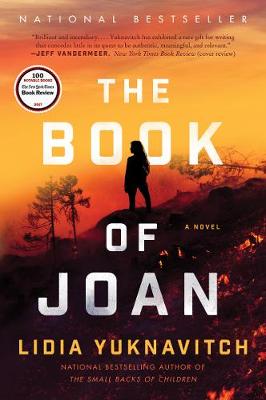Reviewed by Amber (The Literary Phoenix) on
First of all, this book was told in two POVs – Christine and Joan. All the characters in this book are interesting. The switching POVs presented a challenge to me because the narrator did not make it easily clear when the perspective was Christine of Joan. These characters, representative of Joan of Arc and her chronicler Christine de Pezan, tell two very different perspectives of the fall of humanity. Christine lives in CIEL, the place where the wealthy have come to escape dying Earth. As an aftereffect of the fallout, Christine and her peers are physically androgynous. Christine and her love Trinkolo – a fool of Shakespearean affect – are scholars of Joan of Dirt and goat her stories on to their skin. Christine is quiet, but angry. Trinkolo is passionate, just this side of insane. I adored him. But for Christine and Joan? I was bored.
Joan is important to the story because she has a direct energy line to the earth. She’s also the only one who has retained her sexual organs in their full function. So much of this new world is obsessed with sex, mostly as a carnal pleasure lost… but also because of the problem of reproduction. In parts, we hear about Joan’s place in the end of the world. The writing is very lyrical, beautiful. It’s a lot.
I think that’s the most of it. The story is fascinating, and the message of caring for the planet is important, but The Book of Joan is very heavy and because of it’s lyrical writing, it’s difficult to absorb. At least, it was for me. As I said, I feel like I am simply not quick enough, not smart enough for a book like this.
I will say this much – I think that The Book of Joan NEEDS to be read in hard copy. It’s simply too dense for a audiobook.
As far as an overall feeling, I don’t think I can fully say I liked it? I didn’t dislike it either, though. I was fascinated by the world, but also disgusted by CIEL and in many places, simply bored. It was an interesting undertaking, but I’m not sure who, if anyone, I would recommend it to. This was added to my TBR because it was touted as a Joan of Arc retelling… which it is in part. But it’s more a warning than traditionally retelling. It is interesting, but it was difficult and I’m not sure it’s something I would try and read again.
Reading updates
- Started reading
- 5 May, 2019: Finished reading
- 5 May, 2019: Reviewed
